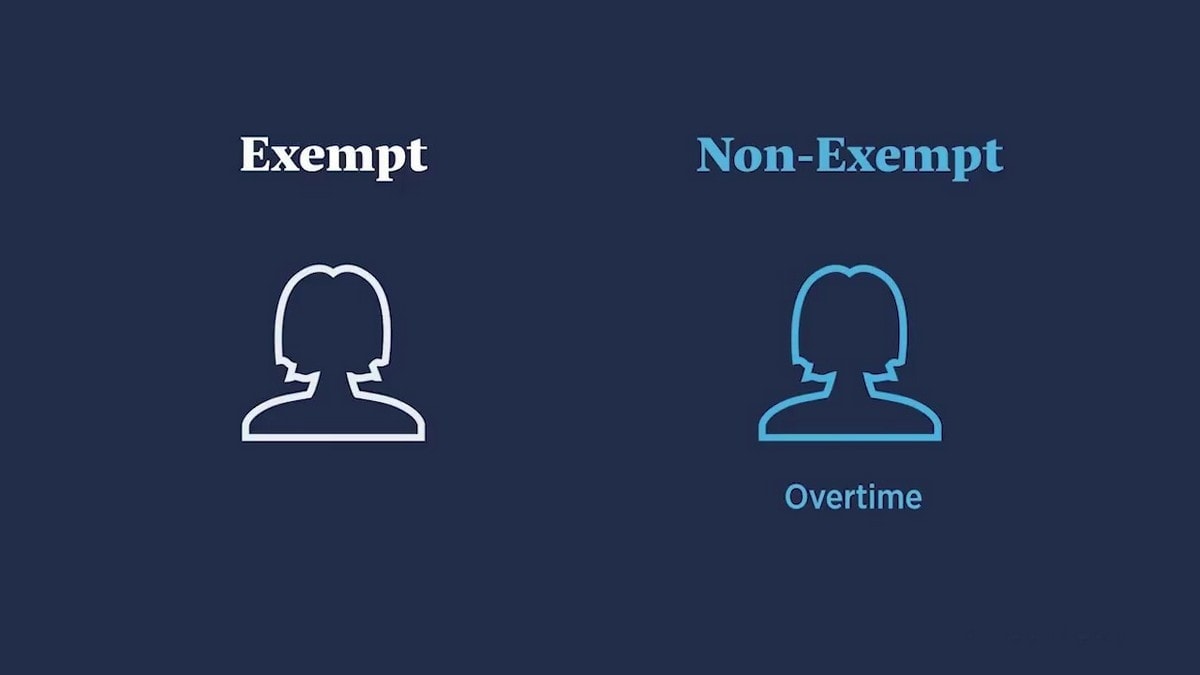Are you a small business owner finding it stressful to calculate your employee’s salary? Is it difficult to identify the difference between exempt and non-exempt employees?
Then here, you can find many points that can help you differentiate between them. Labor law has categorized employees into these two categories primarily to specify who is eligible for overtime pay and who is not.
To get more details, keep reading!
What Are Exempt Employees?
It includes all those workers who are exempt from the overtime provision of the FLSA or Fair Labor Standard Act. So, they are not entitled to overtime pay. Instead, exempt employees get specified salaries and are expected to complete their tasks.
It does not matter whether they work 30 hours for it or 50. Typically, these include supervisory, executive, professional, and outside sales positions.
What Are Non-Exempt Employees?
Non-exempt employees, as the name suggests, are non-exempt from FLSA requirements. Moreover, they are protected under the law, and thus the company must pay them at least the federal minimum wage for extra hours worked.
Furthermore, this overtime pay should be one and a half times the employee’s hourly rate for each hour worked over 40 hours a week.
Comparison Between Exempt Vs. Non-Exempt Employees
Knowing the proper definition of exempt and non-exempt employees is important for entrepreneurs to set an accurate pay-out system for each kind. However, learning about their differences helps understand which one will be beneficial for the company:
- Tax Liabilities
Exempt and non-exempt employees both fall under the tax bracket according to their income level. Therefore, regardless of the types of wages taken under consideration, both are income and thus totally taxable.
- Employees Right
FLSA provisions protect non-exempt employees against all wage violations and breaches. Thus, workers under this division have the right to ask for equal wages and opportunities, a safer workplace, and a minimum wage.
On the other hand, exempt employees with more important tasks are not protected but are somehow provided with similar rights.
- Employees Benefit
Though the company treats both exempt and non-exempt employees with the same employee benefit, it is not mandatory for exempt ones. These benefits include Provident fund, Professional tax, ESI, etc.
- Overtime Implications
The labor law specified that non-exempt employees must be offered overtime hours despite working 40 hours or hours mentioned by the company. In contrast, exempt employees are not liable to complete total working hours but rather the task company gives. Also, they do not receive any overtime hours.
- Employee Pay-Out
The salary pay is different for both. Since exempt employees have specific tasks to meet daily, they should receive a salary and not an hourly wage. In contrast, as non-exempt employees have weekly hours to fulfill, they must receive hourly wages.
- Job Roles
The company mostly relies on exempted employees to manage responsibilities in administrative, managerial, technical, and other similar fields. These job roles affect the status of a company, and thus, the owners give it only to whom they can trust. Non-exempt employees, on the other hand, get non-managerial and less responsible positions.
Exempt Vs. Non-Exempt – Which Is Better?
While there are pros and cons for both exempt and non-exempt employees, it depends on a company’s requirements. For example, a company has to monitor non-exempted employees closely to reap the most productivity. On the other hand, exempt employees receive more payment regardless of their work hours.
So, make sure you take all the differences under consideration while deciding between employing exempt or non-exempt workers. Naturally, this will affect your payroll computation and the overall business profit. However, you can reach out to us if you are unsure and require HR assistance. We have a standard system to look after employee benefits, payroll, and other management areas.
Contact Us
Find out if a PEO is the right solution for your business.
Fill out the form below and we will contact you to schedule a chat.





